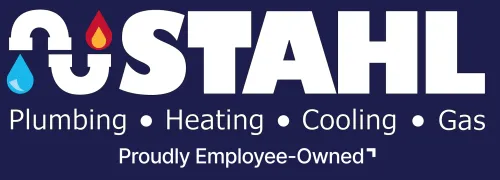Ah, the summertime. There's no better time to go outside and enjoy the day; after a long day of activity, nothing is better than sitting in a nice, cool home. You go to turn on the air conditioner, and instead of a cool breeze, you get a musty scent throughout the house.
What you are experiencing is what HVAC professionals call dirty sock syndrome. It has nothing to do with dirty socks but could leave your house smelling that way. This could be worse than an unpleasant odor; it could harm your home.
This article will cover everything you need to know about dirty sock syndrome, from what causes it to how to fix it.
What is dirty sock syndrome?
Dirty sock syndrome typically happens when you first turn on your AC for the summer season. This is where you will notice that your HVAC smells musty.
The causation is a buildup of dirt, mildew, and moisture in the evaporator coil. This build-up allows for the growth of bacteria and mold. Over time, the bacteria and mold continue to grow, and then when you turn on your AC, it is blown throughout your house. This can also happen if you heat and cool your home with a heat pump.
Is dirty sock syndrome dangerous?
In general, the answer is no. But, if you let the mold and bacteria linger, the answer could be yes. There are no real threats to your long-term health, but dirty sock syndrome could affect your health in the short term, especially if you are susceptible to allergies. Those with allergies might experience an increase in these symptoms:
- Eye irritation
- Nose and throat irritation
- Headaches
- Fatigue
- Respiratory illness
This can be especially problematic for those with severe allergies as they are likely to spend more time indoors during allergy season when you would likely first turn on your AC unit. This can also be an issue for people with asthma and immunocompromised people. It is best to use a high-performance air filter in these homes.
How can I fix dirty sock syndrome?
For the most part, the fix for dirty sock syndrome is quick. The smartest thing to do is to call a local HVAC specialist, and they will come out and diagnose the problem. Remember, dirty sock syndrome isn't going to kill you, but it is unpleasant, and you want to stop it before it gets worse.
If you want to eliminate the smell before the HVAC technician, replace your air filters. This will not solve the problem but will help with the odor. This brings up a great topic: how often to change the air filter. You should be doing this regularly. For a standard air filter, you want to change it every 30-60 days. For a high performance air filter, you want to change it roughly every three months.
Your HVAC technician will check for a few things: see what the build-up on the coil looks like, make sure your drainage is working properly, check the wear of your air filters, and make sure your ducts are properly cleaned. You may have to get a new evaporator coil, but that is a worst-case scenario.
How can I prevent dirty sock syndrome?
HVAC systems in our homes are often overlooked. We typically only think about them when something goes wrong. That's true of dirty sock syndrome as well. Once your AC has been working for a while, you'll notice that the smell goes away. That doesn't mean that you don't want to address it.
You can prevent dirty sock syndrome by properly draining your HVAC unit and regularly changing your air filters. If you have any questions or need help with dirty sock syndrome in your home, please contact Stahl Plumbing today!

